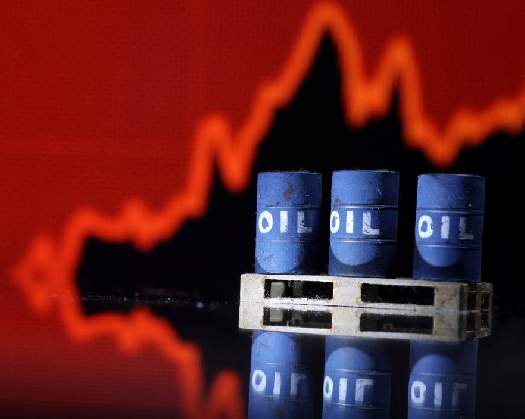Oil prices experienced a modest increase of approximately 1 percent on Thursday, reversing some of the losses observed in the preceding session. This upward movement can be attributed to the ongoing tensions in the Middle East, which have maintained a sense of volatility in the market, particularly in anticipation of the upcoming US presidential election. There is a prevailing expectation for robust demand in the fourth quarter, which has contributed to this upward trend.
Brent crude futures saw a rise of 77 cents, or 1 percent, to $75.73 per barrel by 0655 GMT, while US West Texas Intermediate crude futures advanced by 82 cents, or 1.2 percent, to $71.59 per barrel. This increase was partly due to escalating tensions between Israel and Hezbollah, which have heightened concerns regarding supply.
Oil prices have seen a notable gain of nearly 4 percent over the course of the week, aiding in the recovery from the significant losses experienced in the previous week. Independent market analyst Tina Teng noted in an email that the market is attempting to recover from a steep sell-off, suggesting that concerns over weak demand and an oversupply may have led to an overreaction in pricing, despite the underlying conflict in the Middle East remaining unchanged.
Israel initiated strikes on Damascus, the capital of Syria, early Thursday morning, Syrian state media reported. This was the latest in a series of attacks, following Israeli strikes on the southern suburbs of Beirut the day before and after Hezbollah announced the firing of precision-guided missiles for the first time at Israeli targets.
These escalating exchanges of fire occur as the United States is making its final efforts to broker a peace agreement between Israel and Iran-backed groups Hezbollah and Hamas, which are set to face each other in the November 5 presidential election.
Senior market analyst Phillip Nova of OANDA, Priyanka Sachdeva of Priyanka Sachdeva, and other experts have noted that the market is likely to experience more volatility in the coming days leading up to the election, which will be followed by the Federal Reserve's decision on the November interest rates.
There is a possibility that the outcome of the election could impact oil prices, particularly if the new administration adopts policies that could increase the supply of oil in the market.
"Further potential upside in oil prices may be limited by the US presidential election, where...Trump is leading over (Kamala) Harris based on current data from betting markets, and Trump has proposed making the US a major oil supplier," Kelvin Wong of OANDA's senior market analysis team has suggested.
However, it is important to note that while betting markets indicate a lead for Trump, other polls suggest the result is still too close to call.
On the demand side, there has been a boost from stronger demand for distillates, as highlighted by JP Morgan analysts in a client note. This is attributed to robust travel demand in Asia and consistent drawdowns in distillate stocks across several major markets. JP Morgan analysts anticipate that distillate demand in the fourth quarter may exceed initial expectations.












